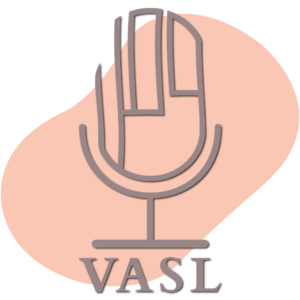Hi there! Winter has arrived in Eindhoven, bringing a week-long spell of continuous rain and gradually dropping temperatures. With shorter days, the sun sets earlier than anticipated, and the nights are misty and chilly. Today, I want to talk about “to err is Human” but first….
Weekly Inventory Check
Have you successfully reached your goal, or are you on the verge of accomplishing it? If you find yourself falling short of your monthly goals, it’s important to recognize that failure is a natural part of the journey. The key lies in understanding how to enhance your position from this moment until the next month. Continuous improvement is the true measure of success. Falling short doesn’t equate to failure if you’re actively working on progress. So let’s embrace the growth mindset.
To Err is Human
I recently listened to a podcast featuring a Harvard professor who delved into the intriguing concept of the spectrum of failure. The discussion revolved around which failures should be celebrated, which ones should be punished, and which ones fall in between without significant consequences. Society often ingrains in us a fear of failure, associating it with punishment and a sense of inadequacy.
In many cultures, including my South Asian background, failing is met with disappointment from family and societal expectations. The professor presented a spectrum of failure, ranging from sabotaging actions, such as a pilot intentionally causing harm, to the more constructive end of experimentation, where failures are stepping stones to success.
Sabotage, actively trying to destroy or fail, is deemed highly blameworthy. On the other hand, experimentation, marked by trial and error, is celebrated—think of a scientist testing hypotheses. This process of experimentation is fundamental to learning and progress; it’s the pathway to numerous discoveries and advancements. An interesting addition to this spectrum is the concept of luck. Experimentation is lauded globally because, in essence, if you’re not courageous enough to try and fail, luck is less likely to favor you. The saying “luck favors the bold” emphasizes the importance of taking risks and embracing failure as part of the journey.
To distill the message: it’s crucial to recognize the type of failure we’re experiencing. If it falls within the realm of experimentation, where learning and growth occur through a feedback loop, it should be embraced and even praised. However, if the failure involves sabotage or unintentional harm without learning, it’s a deviation from the correct way to fail.
In conclusion, let’s shift the narrative around failure. Instead of fearing it due to the stigma of punishment, let’s understand that not all failures are equal. By distinguishing between the right kind of failing, marked by experimentation and learning, we can foster an environment where failure is not just accepted but celebrated as a vital part of the journey toward success.
Here’s a chart that you can relate to;
Want More?
This article of Harvard Business School Professor Challenges Misconceptions and Offers Strategies for Successful Learning in Organisational Life.
This article summarises a letter from Robert Greene‘s book Mastery where he explained two kinds of failures and their implications in life.
This article explores the perspective on failure, emphasising that it is a universal experience. Instead of succumbing to setbacks, it advocates for standing resilient and overcoming failures with steadfast determination.
Reel of the Week
Check out our reel of the week where I talk about my decision to cease my dishwashing job within just two days stemmed from the physical strain it imposed on my body. Likewise, many individuals have encountered setbacks in unconventional employment or during the initiation of entrepreneurial endeavours. Even though feelings of remorse may persist, it is imperative to acknowledge that these failures should be embraced as valuable opportunities for growth and learning.
Instagram post by @thisisvasl
The Weekly Vasl Podcast
Check out the insightful conversation with Mr. Richard Blank, the CEO of CCC, renowned for his extensive experience in bilingual telemarketing. I steered the conversation into the nuances of cold calling while exploring Richard’s remarkable journey through Spain, Costa Rica, Africa and other exotic destinations where he spent his time grasping as much exposure as he could. Discover the challenges and adventures that shaped his path, from mastering new languages to engaging in meaningful conversations. Richard’s resilience led him to become a self-made entrepreneur, training 10,000 individuals in soft skills and the art of creating enjoyable conversations.
We also are on Spotify, Apple, Google, and wherever you listen!
The Round Table
I am excited to introduce the Round Table at Vasl.
Here, you have the opportunity to join a group for the upcoming quarter. Together, we will determine your quarterly goals and form a cohesive group centered around shared themes. You will get a chance to learn about 12 agile principals in 12 weeks that will help you get closer to reaching your goals. While I aim for a certain level of similarity to facilitate cohesive discussions, I also appreciate the value of diverse experiences. The goal is to create a supportive environment where learning from varied perspectives is encouraged.
We are opening eight seats for this group where I will act as the facilitator. Throughout the journey, you’ll be backed by your fellow peers, have access to shared resources and as I tend to introduce shared Notion Space where we can all collaborate and exchange resources. If this opportunity resonates with you, you can sign up now using the following the link.
Please note that this commitment is non-binding initially. You will first fill out a form, and we will assess if we are a match. Once we think you are a match, you will be officially sent an invitation.
However, I must stress that there are limited seats available—only six to eight seats. So act quick to secure a spot in this cohort, as we wouldn’t want you to miss out on this opportunity. The upcoming cohort will commence at the beginning of the year, with the following cohort scheduled for March 2024.
I look forward to welcoming you to the Round Table and witnessing the positive impact it will have on your personal and professional growth.
Thoughts to Leave You With
I’d like to add another important point regarding the concept of consistency. Many individuals attribute success to luck, saying, “You’re lucky,” but in reality, it’s about being consistent. True consistency stems from not fearing failure. If you achieve success after trying only a few things, it’s not true consistency; it’s more about luck. Genuine success, however, arises from persistent efforts, continuous trials, and learning from failures.
It’s crucial to distinguish between these scenarios. Sometimes people dismiss someone’s achievements as luck without acknowledging the hard work, diligence, and learning embedded in their journey. Merely saying someone got lucky overlooks the extensive process and the value of failing that contributed to their growth. People might think they could replicate the success if they knew the way, but the truth is, the fear of failure might prevent them from taking the necessary risks and initial steps. I encourage you to embrace the first step, recognising that making mistakes is a fundamental part of being human. Remember, consistent effort and willingness to learn from failures are the true drivers of success, dispelling the notion of luck as a mere chance occurrence.
Exploring the Dynamics of Success The Weekly Vasl


